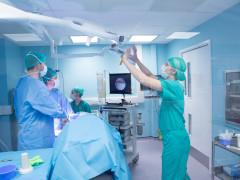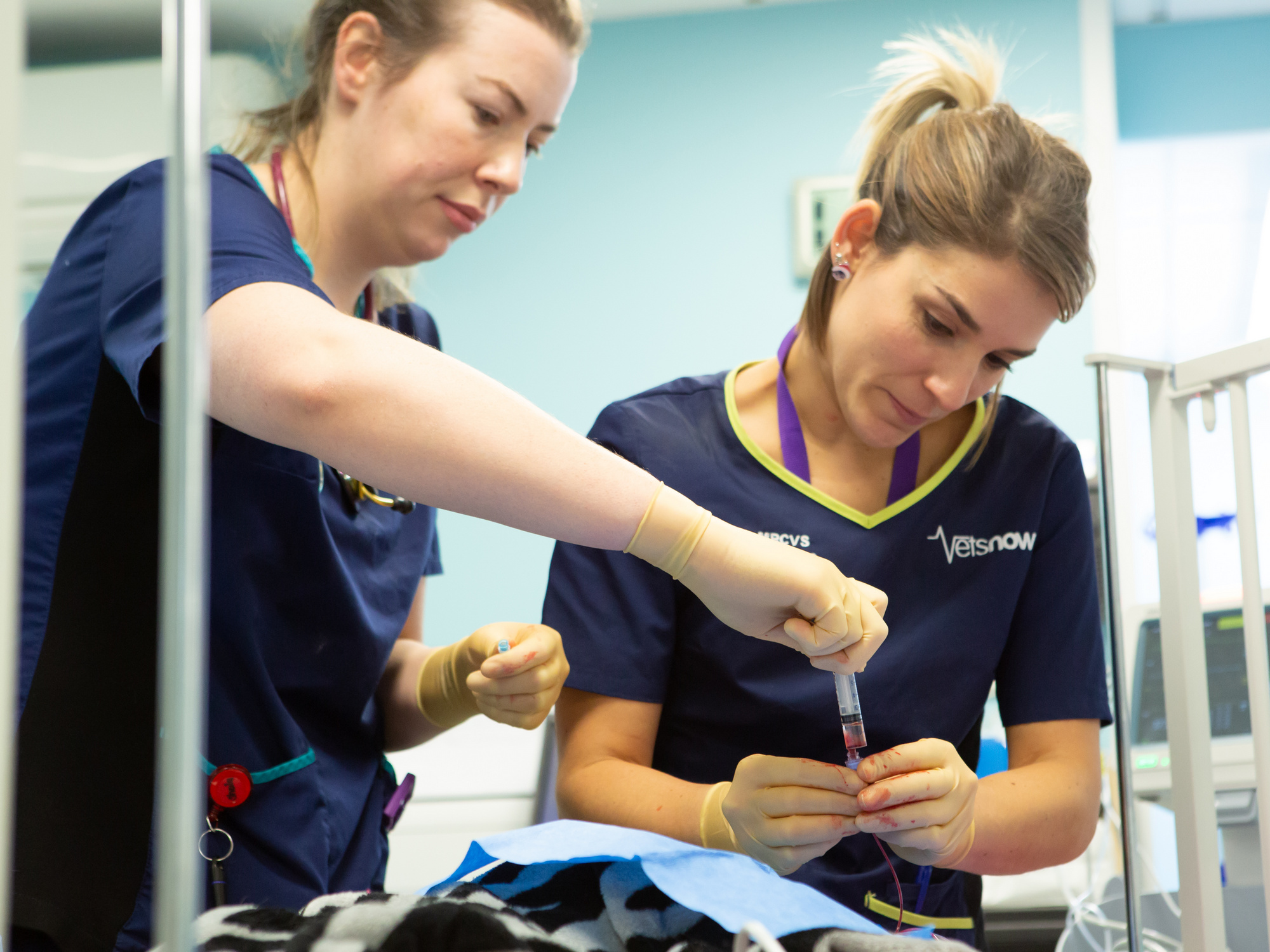Vet talks positively about her experiences on Vets Now’s three-year ECC residency programme
In our emergency and specialty hospital in Glasgow, we’re working hard to develop the next generation of outstanding emergency and critical care vets.
At the heart of this is our emergency and critical care residency programme. It’s the only one of its kind in Scotland and over its three-year term vets work towards specialist status, being mentored by board-certified diplomates, including Dan Lewis and Tobias Grave.
We’re about to take on two new residents in Glasgow who will join established vets Neus Elias Santo-Domingo, Serena Bassolino, and Natalia Mohr. Neus, 32, from Barcelona, embarked on our residency programme two years ago. Here she talks about the learning culture in the hospital and the invaluable experience she has gained during her residency.

Are you an ambitious vet keen to do a residency in ECC?
Call our talent team on 01383 841181 to discuss your options or send one of our talent partners an email by clicking here.
Find out moreWhat does the residency involve?
It’s a bit like human doctors – you can either go into general practice and do a bit of everything or you can choose to specialise in something more specific. If you decide to become a specialist, you have to do a residency to get a knowledge base in each area of your subject. In Glasgow, there is a three-year programme and residents are mentored by specialists who have already been down the same route. In Glasgow, for example, Dan Lewis and Tobias Grave mentor the residents and supervise us when we see patients. We also have to do a lot of studying so we have journal clubs and book review sessions to help with this. We also carry out comprehensive investigations into complicated cases which involves publishing our findings and hopefully contributing to the wider veterinary profession.
Is it hard work?
We work long hours and there is a lot of studying, but everyone at Vets Now makes sure we are happy and healthy and being well looked after, as well as looking after ourselves. We’re really lucky in this regard because we’re supported by everyone in the team. They’re all willing to offer a hand and help out wherever they can.
Why did you choose to do a residency in Glasgow?
I wanted to specialise in ECC. It’s a niche area and there are only a few places in Europe that do ECC residency programmes. I felt that moving to the UK was a must if specialising was what I wanted to do. My options were either London or Glasgow so I chose Glasgow because of the reputation of the specialists I’d be working with and the culture in the hospital.

You might also be interested in:
Is there a mentoring culture in the hospital?
Without a doubt. Even if Dan or Tobias aren’t in the building we can always call them for advice. If a case is more medicine-focused then we get support from the internal medicine team. We have our surgical weeks as well where we spend six weeks in surgery, improving our skills. That way, if we’re dealing with an ECC case then we are better equipped to do ECC surgery. We also receive a lot of mentoring on the non-clinical side of things.
Why ECC?
In emergency, you have to be ready for anything and it’s that adrenaline rush that I really enjoy. It’s different from critical care because that involves looking after the patients that are really sick. I like the fact we’re giving those critically-ill pets a chance to survive that they perhaps wouldn’t have got without us being here. You have to consider a lot of things to help critically-ill patients recover so it can be challenging. But the successful cases are amazing because you see them go through this huge ordeal and come out the other side thanks to your treatment. It’s really satisfying.
Where do you see yourself in five years’ time?
Hopefully, I’ll have finished my residency and passed the board exams. I’m then hoping to work as a specialist while training further, perhaps helping other residents in the profession and just improving veterinary medicine as much as I can.
What’s the one piece of advice you’d give undergrads?
Don’t give up, because at first the hours can be really tough and there’s a lot of emotional strain but it’s really worth it. I’d also advise them to keep training throughout their career, don’t stay in a place where you’re doing the same thing every day because you won’t grow as a vet. There are plenty of opportunities out there from internships to residencies so always push yourself to be the best vet you can be.
What’s your background?
I studied veterinary medicine at the University of Barcelona. I then did a rotating internship at a university there, where I practised out-of-hours care. I moved to the UK five years ago and initially worked in a first-opinion practice. I then moved to Vets Now and did an ECC internship before starting my residency in ECC around 18 months ago.
